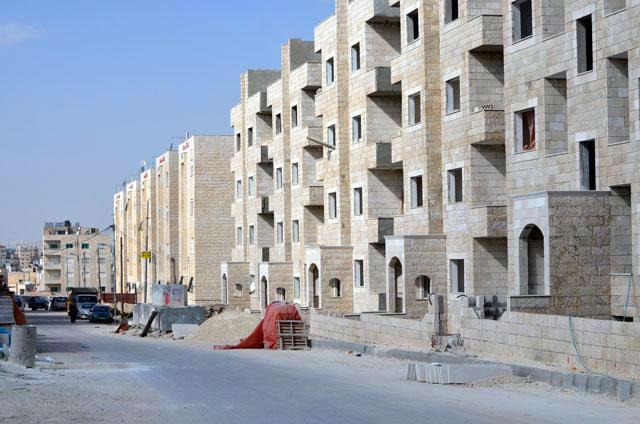Economic and Sector Work Jordan Housing Sector Review
The document titled “Jordan Housing Sector Assessment: Housing Sector Review” provides a detailed analysis of the housing sector in Jordan, focusing on the challenges and opportunities within the market. It aims to inform policy decisions and improve the housing system to better meet the needs of various population segments, especially in light of significant demographic changes and economic pressures.
Overview of the Housing Sector
Jordan’s housing sector plays a crucial role in the economy, contributing significantly to the Gross Domestic Product (GDP) and employment. However, the rapid increase in population—partly due to an influx of refugees—has placed unprecedented pressure on housing availability. The review highlights that Jordan’s population is projected to reach between 11.1 million and 12.9 million by 2030, necessitating a substantial increase in housing supply.
Current State of Housing
The document outlines that while Jordan has produced enough housing units to accommodate its population, a significant portion remains vacant. As of 2015, the vacancy rate stood at approximately 18.4%, indicating a mismatch between supply and demand regarding price, location, size, and tenure. The report notes that over 1.1 million housing units were constructed between 2004 and 2015, predominantly through private sector initiatives. Despite this production, affordability remains a critical issue, particularly for low-income households.
Key Challenges
Several challenges are identified within the housing sector:
- Affordability: The rapid population growth has led to increased demand for affordable housing, but many low-income families struggle to find suitable options within their financial means.
- Informality: A high level of informality in the housing market complicates efforts to provide adequate housing solutions. Many residents live in unregistered or informal settlements without access to basic services.
- Limited Government Support: The review points out that government programs aimed at supporting affordable housing development are scarce. There are few subsidies available for low-income households, which exacerbates the affordability crisis.
- Inefficient Housing Finance: The existing housing finance system is described as shallow and ineffective in meeting the diverse needs of the population. Access to mortgage financing is limited, particularly for lower-income groups.
Market Responses
Despite these challenges, the Jordanian housing market has shown resilience. The construction sector has adapted to high population growth rates and economic fluctuations by increasing production levels significantly. However, there remains a need for better alignment between market offerings and actual housing needs.
Recommendations for Improvement
The document offers several recommendations aimed at enhancing the effectiveness of Jordan’s housing sector:
- Policy Reforms: There is a pressing need for comprehensive policy reforms that address both supply and demand issues in the housing market. This includes revising existing regulations to facilitate affordable housing development.
- Strengthening Housing Finance: Improving access to financing for low- and middle-income households is critical. This could involve developing specialized financial products that cater specifically to these groups.
- Enhancing Government Programs: Expanding government initiatives to support affordable housing development is essential. This includes providing subsidies for construction and facilitating access to land for developers.
- Promoting Public-Private Partnerships: Encouraging collaboration between public entities and private developers can leverage the resources and expertise necessary for addressing the housing deficit effectively.
- Data Collection and Management: Establishing robust data collection systems will help better understand housing needs and market dynamics, allowing for more informed policy-making.
Conclusion
In conclusion, the “Jordan Housing Sector Assessment” highlights significant challenges facing the country’s housing market while also recognizing its potential for growth and improvement. By implementing strategic reforms focused on affordability, accessibility, and effective governance, Jordan can develop a more coordinated and responsive housing system that meets the diverse needs of its population. The recommendations outlined in this review serve as a roadmap for policymakers aiming to create sustainable solutions in response to ongoing demographic shifts and economic pressures within the country’s housing sector.

Further/other reading:
[PDF] Jordan Housing Sector Review – World Bank Documents and Reports documents1.worldbank
World Bank Document documents1.worldbank
